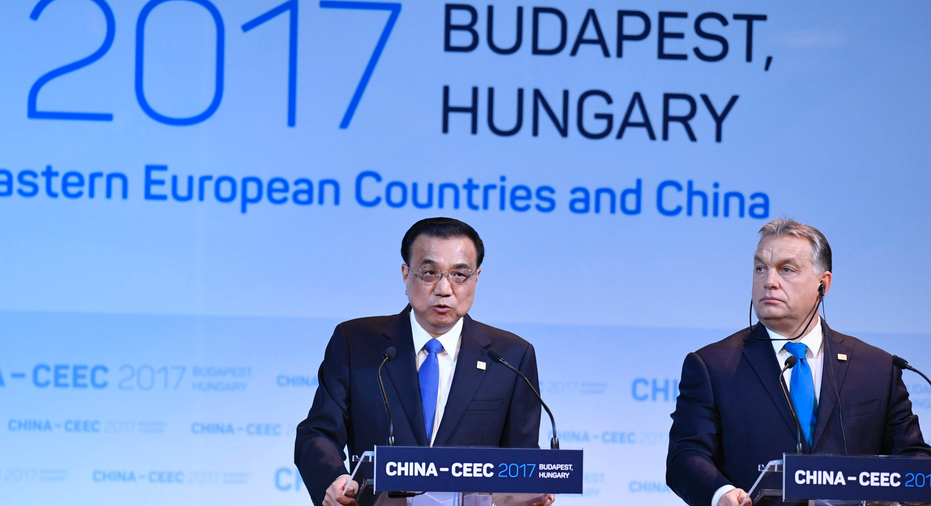Chinese premier backs more investments in eastern Europe

BUDAPEST, Hungary – China's premier outlined his hope Monday that his country's closer cooperation with central and eastern Europe will help foster prosperity in the region.
At a summit of 16 countries in the Hungarian capital, Premier Li Keqiang said efforts such as China's "new Silk Road" initiative to expand trade across Asia, Africa and Europe, should be a boon to the countries that were formally part of the communist bloc.
"Our aim is to see a prospering Europe," he said, adding that the closer ties with the 16 countries, which includes 11 European Union members, will "usefully complement" EU-China relations.
China's rapid economic growth has seen the country ratchet up its spending on the global stage, and the "Silk Road" prospect is a key trade effort.
Hungarian Prime Minister Viktor Orban, host of the "16+1" summit, said the region was in need of external technological and financial resources, including from China, to grow.
"European resources are in themselves insufficient," Orban said. "For this reason we welcome the fact that as part of the new economic world order, China sees this region as one in whose progress and development it wants to be present."
Orban mentioned the reconstruction of a railway line between Budapest and Belgrade, the capital of Serbia, a project financed mainly by China, as a "flagship project" of China's increased presence in the region.
Orban said that the upgraded railroad line could become the fastest transport route to Western Europe of China's new Silk Road.
Li laid out his hope that the countries of eastern Europe, which generally are poorer than those in the west, will account for more of China's imports, which should total some $8 trillion over the next five years.
"We hope the central and eastern European countries find their place in this volume and expand their presence on the huge Chinese market," Li told an economic forum being held during the summit.
Orban, who has closed off his country to most migration from outside Europe, especially Muslims, said Europe needed "strong allies" to confront the "historical challenges" it is faced with.
"If Europe shuts itself in, it loses the possibility of growth," Orban said. "We 16 have always been open and would always like to remain so. We always saw cooperation with China as a great opportunity."
Orban has been keen to pursue a policy of "Eastern Opening" for Hungary, looking to increase trade with Asia while portraying Western Europe as economically challenged and losing its global standing. His stance is seen as an effort to discredit criticism from the European Union that he is undermining democratic principles.
"We see the Chinese president's 'One Belt, One Road' initiative as the new form of globalization which does not divide the world into teachers and students but is based on common respect and common advantages," Orban said.



















